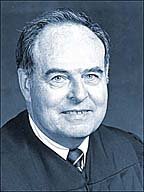Case o' The Week: (En) Banc Robbers Threaten Two Good Booker Decisions

The Ninth Circuit takes en banc two good Booker decisions; Zavala and Carty. Order available here.
Players: Tashima and Paez on Zavala, Beezer on Carty.
Facts: In United States v. Zavala, 443 F.3d 1165 (9th Cir. 2006), Judges Tashima and Paez hold that the guidelines are entitled to no more weight than any other § 3553(a) factor. See blog here. In United States v. Carty, 453 F.3d 1214 (9th
 Cir. 2006), Judge Beezer explained that a sentencing court had provide some on-the-record articulation of its consideration of the Section 3553(a) factors. See blog here.
Cir. 2006), Judge Beezer explained that a sentencing court had provide some on-the-record articulation of its consideration of the Section 3553(a) factors. See blog here. Issue(s): The Ninth, unfortunately, has taken both cases en banc. In an order on August 25th, the Ninth invited supplemental briefing on the following questions:
1. Do we have jurisdiction to review appeals of within-Guidelines range sentences?
2. If we have jurisdiction to review within-Guidelines range sentences, are such sentences entitled to a presumption of reasonableness, or should we review such sentences no differently than we review outside-Guidelines range sentences? If within-Guidelines range sentences are entitled to a presumption of reasonableness, is this presumption conclusive? Rebuttable? If rebuttable, how can such a presumption be rebutted?
3. How should we review a post-Booker sentence for reasonableness? Do we review only whether the district court complied with Booker’s mandate to consider the 18 U.S.C. § 3553(a) factors? If so, is this review de novo? Do we independently review the sentence imposed for reasonableness? If so, how do we determine whether a sentence is reasonable? What legal and factual matters, if any, must we consider? Is this review for abuse of discretion? Are factual findings decided by the district court reviewed for clear error, abuse of discretion, or on some other standard of review? Does it matter whether the findings are pertinent to the calculation of the advisory Guidelines range or pertinent to the application of the other 18 U.S.C. § 3553(a) factors?
4. What procedure is a district court required to follow in sentencing a defendant within the advisory Guidelines range? In particular, what should be the district court’s duty, if any, to articulate its consideration of the section 18 U.S.C. § 3553(a) factors?
5. If distinct from the procedure for within-Guidelines range sentences, what procedure is a district court required to follow in sentencing a defendant above or below the advisory Guidelines range?
6. What weight does the advisory Guidelines range have, in relation to other 18 U.S.C. § 3553(a) factors? In conducting a sentencing proceeding, may a district judge announce that he will impose a sentence within the advisory Guidelines range unless the parties present compelling reasons for imposing a sentence outside of that range? On review, should we determine whether the district court has given the advisory Guidelines range the appropriate weight, and if so, how?
See order here.
(To Be) Held: ¿Quién sabes?
Of Note: In 1991, Judy Clark argued Restrepo before the en banc court. United States v. Restrepo, 946 F.2d 654 (9th Cir. 1991). At issue was a key aspect of the (then-new) guidelines: proof requirements at sentencing. It was a historical juncture in Ninth Circuit sentencing practice. This Carty and Zavala argument is analogous: if the en banc decision survives Supreme Court review, it will be the lead case defining this new sentencing system in the Ninth.
How to Use: The Ninth has invited amici to weigh in: it is likely that we will. Other organizations – like CACJ and NACDL – should consider amicus briefing as well.
For Further Reading: Professor Berman is not surprised that the Zavala decision has been caught in the jaws of en banc review. See Berman’s blog here. . The good professor speculates, however, that this all might be upstaged by the Supremes. See blog entry here (listing circuit splits).
Steven Kalar, Senior Litigator N.D. Cal. FPD. Website available at www.ndcalfpd.org
.

2 Comments:
I think it's "¿Quién sabe?" rather than "¿Quién sabes?"
Does anybody know if the 9th Circuit has any pending "honest services" cases. In the never ending struggle to give some contours to this tortured statute, that is often abused by prosecutors, other circuits have started limiting it's breath. What about the Ninth? Anybody know anything?
Post a Comment
<< Home